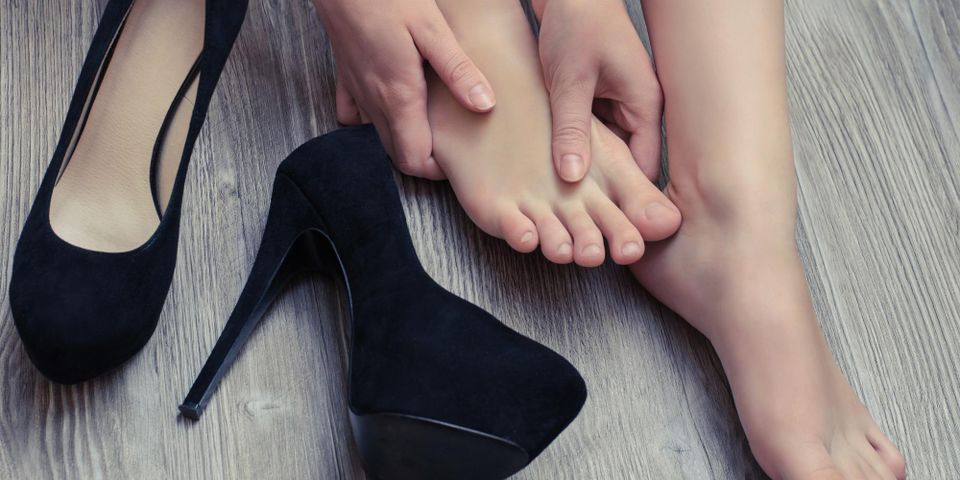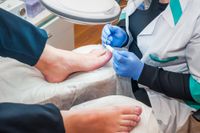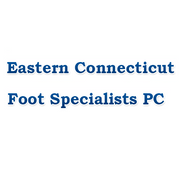
Hammer toe is a common foot condition in which the middle joint of a toe grows at an abnormal bend. It can result in pain, difficulty walking, and the development of corns or calluses on the affected toe. To help you better understand this issue, below are answers to frequently asked questions.
Common Questions About Hammer Toe
What causes this condition?
Frequently wearing high heel shoes or any other type of footwear with a tight, constricting toe box can put pressure on the toes and cause the joints to bend. Foot trauma can result in hammer toe as well, essentially knocking the toe joint out of place and creating a deformity. An imbalance in the muscles of the toe is another possible cause, producing instability in the joint and making it contract.
Who is most at risk for this condition?
Women develop this condition more often than men, likely because of high heel use. The condition is also more common as a person ages. Those with arthritis- or diabetes-related foot problems have higher incidence of developing this condition, as do people whose second toe is longer than their big one.
How is it diagnosed?
While this condition is almost always visible to the naked eye, a definitive diagnosis should be made by a podiatrist. The doctor will examine your feet and study the reflexes and mechanisms of the toes. They may also take X-rays to determine the extent of the issue and the necessary treatment.
How is it treated?
 Hammer toe is a progressive issue and does not get better without medical treatment. Your podiatrist might prescribe a change in footwear to a more open and comfortable shoe, the application of corn or callus pads, the use of orthopedic devices, or taking certain over-the-counter pain medications. For extreme cases of hammer toe where walking is painful or there is an open sore on the toe, surgery may be needed.
Hammer toe is a progressive issue and does not get better without medical treatment. Your podiatrist might prescribe a change in footwear to a more open and comfortable shoe, the application of corn or callus pads, the use of orthopedic devices, or taking certain over-the-counter pain medications. For extreme cases of hammer toe where walking is painful or there is an open sore on the toe, surgery may be needed.
Prompt diagnosis and treatment are the keys to managing hammer toe and preventing it from worsening. Eastern CT Foot Specialists can help. For over 25 years, they have been providing residents in Norwich, North Windham, and the surrounding Connecticut areas with foot treatments. They also offer a wide range of services for bunions, heel spurs, sports injuries, and other foot conditions. Call (860) 887-3538 in Norwich or (860) 456-9593 in North Windham to schedule an appointment or visit their website to read more about their treatment options.
About the Business


